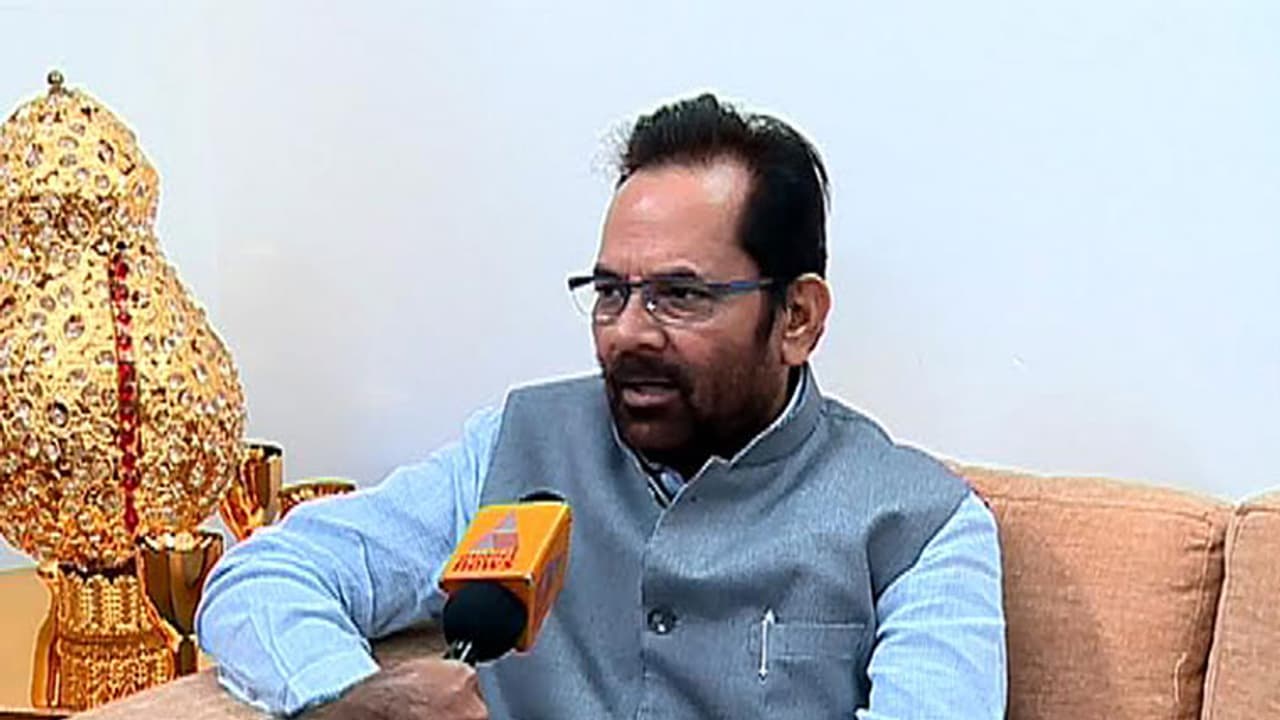Lack of such facilities was the reason behind the low literacy rate among minorities especially, Muslim girls, he was quoted as saying by the statement
Minority Affairs Minister Mukhtar Abbas Naqvi today said that for the first time a campaign has been started on "war-footing" to provide basic amenities for ensuring educational empowerment of girls from minority communities in 308 districts across the country.
He also said the government's efforts aimed at inclusive growth have ensured that minorities have been brought into mainstream development, according to a statement issued by his office.
Addressing a conference here of principal secretaries and secretaries in-charge of states and Union Territories (UTs) dealing with minority affairs, Naqvi said the government is providing schools, colleges, polytechnics, girls hostels, Industrial Training Institutes (ITI), and skill development centres under the 'Pradhan Mantri Jan Vikas Karyakram' in those backward and ignored areas which had been deprived of these facilities since independence.
Lack of such facilities was the reason behind the low literacy rate among minorities especially, Muslim girls, he was quoted as saying by the statement.
For the first time after independence, a campaign has been started on "war-footing" to provide basic amenities to ensure educational empowerment of girls belonging to minority communities in 308 districts across the country, Naqvi said.
During the last four years, under Multi-sectoral Development Programme, 16 degree colleges, 2,019 school buildings, 37,267 additional classrooms, 1,141 hostels, 170 ITIs, 48 Polytechnics, 38,736 Anganwadi centres etc. have been constructed by the government.
Naqvi said that the 'Pradhan Mantri Jan Vikas Karyakram' (PMJVK) has proved to be an effective mission of the government to fulfil the commitment of "development with dignity" and "inclusive growth".
Naqvi said that 80 per cent of the resources under the PMJVK have been earmarked for projects related to education, health and skill development.
About 33 to 40 per cent of resources under the PMJVK have been specifically allocated for women centric projects.
Earlier, only those cluster of villages which were having at least 50 per cent population of minority community were taken. The population criteria has been lowered to 25 per cent for inclusive growth, he said.
Naqvi asserted that the state governments have equal responsibility for ensuring better and effective implementation of PMJVK.
He said that socio-economic and educational empowerment of minorities and weaker sections was the equal responsibility of the Centre as well as the states.
Naqvi said that during the last four years, 2 crore 66 lakh students belonging to poor and weaker sections of minorities have benefited from various scholarships.
More than 5 lakh 43 thousand youths have been provided employment and employment opportunities through job-oriented skill development schemes, he said.
Principal secretaries and secretaries in-charge of minority affairs of more than 17 states and UTs attended the national conference.
During the conference, officials of Minority Affairs Ministry gave detailed presentation to representatives of the states and UTs on PMJVK, different scholarships, skill development schemes, Waqf, National Minorities Development and Finance Corporation (NMDFC) and various schemes of the Maulana Azad Education Foundation.
